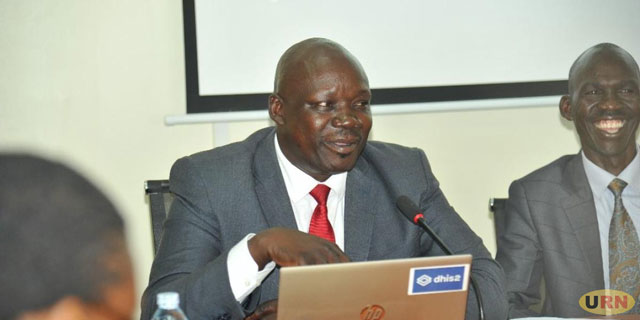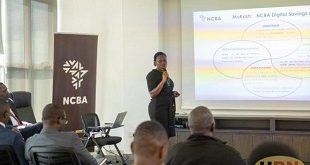
The MPs observed that the education system has been adversely affected by public officials who, in their capacity as supervisors, have failed due to conflicts of interest.
Anthony Akol, the chairperson of the Acholi Parliamentary Group, pointed out that public schools have intentionally been undermined by individuals within the ministry who prioritize the promotion of their own institutions.
Akol, the MP for Kilak North, named education ministers, and commissioners who own some of the best schools in the country. Yet, at the same time, the public schools in their own neighborhoods are in a poor state.
The proposal was presented to the Education Policy Review Commission which has been meeting parliamentary groups this week.
They emphasized that from education ministers to commissioners and even headteachers, many of them own schools, which might not inherently be an issue. However, the problem arises as they neglect their supervisory duties.
During the submission, Akol added that a significant number of policies geared towards supporting government schools are being undermined by these individuals to ensure the survival of their private businesses. He further pointed out that on numerous occasions, these officers have been discovered operating their personal institutions using government resources.
Akol cited instances where headteachers, who also manage private schools, have gone to the extent of employing government-paid teachers to work in their private schools, and also deriving resources from libraries and laboratories at their own wish.
During the discussion, Clarence Olongamuri, a member of the commission, urged the MPs to submit a clear recommendation on this matter. He emphasized the critical nature of the issue, noting that many individuals who have visited the commission have expressed opposition to the idea of personalities and personnel within the sector owning schools while simultaneously playing a role in shaping policies within that same sector.
Professor David Kabasa, another member of the commission, also spoke up, acknowledging that conflict of interest can sometimes hinder officers from effectively carrying out their duties. However, he reminded the Members of Parliament that in Uganda, everyone has the freedom to start an enterprise, aligning with the overarching government policy.
Professor Kabasa also highlighted that even in the health sector, doctors are allowed to have private practices. Nevertheless, he acknowledged that this particular area is indeed a gray area and may require regulation. However, in his view, the regulation of such matters might extend beyond the scope of the Education Policy Review Commission.
Engineer John Nasasira, former Works Minister and member of the commission who chaired the session, shared his perspective, suggesting that the debate should revolve around individuals declaring their conflicts of interest when appointed to office.
Eng Nasasira argued that maybe officials should be prohibited from actively managing such ventures during their tenure and, instead, appoint someone who can responsibly hold the position until they leave office. He cited examples from other countries, notably referencing the United States, where Donald Trump stepped down from directly managing his business when he assumed the presidency.
In a parallel development, akin to other groups that have presented before the commission, Acholi Members of Parliament also urged the commission to provide robust recommendations concerning the regulation of private schools, the management of school fees, and the enhancement of school inspection procedures.
Reverend Father Onen noted that the recommendations, no matter how well-intentioned, may not be effective if the Ministry of Education does not undergo its own reform. He pointed out that the ministry operates in isolation, with each department functioning independently and failing to collaborate effectively.
Even on critical issues, they merely distribute circulars without genuine enforcement or follow-through. In his view, the reformation of the education ministry and the revitalization of school inspections would stand as one of the most beneficial recommendations if implemented.
The Acholi MPs also indicated strong resistance to some policies like automatic promotion which is being exercised in government schools noting that this should be struck off as a learner who has not achieved the required competence for a certain class cannot be just promoted.
In their memorandum, they contended that while the policy appeared to contribute to a decline in dropout rates, enhanced access to education, and increased motivation among pupils, it has inadvertently fostered a lackadaisical attitude. This is because every pupil believes they will be promoted even without concentrating in class, leading to a diminished sense of urgency and commitment to learning.
“But in the Acholi sub-region, the policy has had a negative effect on the quality of Primary education. This is attributed to lack of competition, de-motivation of Pupils and Teachers, hence lowering of teaching and learning outcomes,” the paper reads in part.
The automatic promotion policy was introduced partly to address the low completion rates among students in universal education. Additionally, it served as a tool to reduce the government’s expenditure on paying for repeaters.
Despite the implementation of this policy, completion rates remain low, with only 30 percent of students who enroll in Primary One proceeding to Primary Leaving Examinations (PLE). Many educationists have expressed skepticism, suggesting that automatic promotion may not be the solution to improving completion rates.
However, Professor Hannele Niemi, the UNESCO Chair on Education Ecosystems for Equity and Quality of Learning, an expert from Finland, advised the commission last month to uphold this policy.
Meanwhile, the Members of Parliament unanimously urged the commission to reconsider the policy of teaching using local languages as the language of instruction at lower primary levels, arguing that it is not effective. They highlighted several concerns, including the limited number of teachers proficient in local languages, leading to a lack of basic skills in reading, writing, speaking, and comprehension among learners.
The MPs asserted that this policy creates a disadvantage for rural learners compared to their urban counterparts studying in English. Furthermore, they pointed out that the selection of specific languages for thematic curriculum implementation has led to feelings of exclusion for certain languages, thereby raising tribal concerns in communities.
However, this proposal faced resistance as some commissioners argued that the legislators were expressing opinions based on an uninformed perspective regarding the thematic curriculum and instruction in local languages at lower primary levels.
For instance, Dr. Kedrace Turyagyenda, a commission member, noted that the introduction of school brings about various new experiences for children, including a new physical environment, unfamiliar classmates, and a stranger as the authority figure, the teacher. she added that having an abrupt change in the language of instruction could complicate the situation further.
The decision on instructional language in lower primary education has been a contentious issue since its adoption in 2015 when Parliament approved the Thematic Curriculum, which required children in P1 to P3 to be taught in the predominant local mother tongue as the medium of instruction, before resorting to English from P4 onwards.
This debate is not unique to Uganda. writing on the topic in 2015, Professor Angelina Kioko , an educationist noted that in countries where English is not the first language, parents and communities often believe that teaching in English from the outset provides an educational advantage.
Professor Kioko debunked this noting that various research studies consistently indicate that learners benefit from using their home language in education during the early years, preceding a later transition to primary education.
The commission is currently engaging with various groups to gather input and will subsequently formulate recommendations that will serve as a blueprint for the education sector, outlined in a government white paper. Notably, a similar commission chaired by Professor William Senteza Kajubi undertook a comparable initiative between 1987 and 1989. Regrettably, a significant portion of their recommendations went unimplemented.
 The Independent Uganda: You get the Truth we Pay the Price
The Independent Uganda: You get the Truth we Pay the Price



